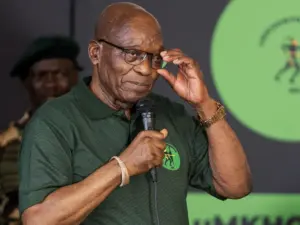By: Hadebe Hadebe
This schematic presentation of slavery trade and colonial wars is developed from the combined perspectives of history, economics and politics as an attempt to prove beyond a doubt that conflicts in Southern Africa had a positive correlation with slave trade and colonialism, both which are functions of economics.
The sketch is separated in three interlinked phases: pre-1800 (Arab-Western slave trade and British takeover); 1800s (European slave trade); and early 1900s (British victory and internal slavery).
Key points:
1) Conflict in southern Africa as a result of European-Arab interest in trading activity began prior to 1200s. However, the interaction between the East and Western occured in the 15th century with increased European voyages supposedly to Asia.
The Portuguese explorers were amongst the first to land in southern Africa after China had ceased its naval operations in the 1500s. Slaves were harvested to provide cheap labour in home countries and in the new territories. Much of the recorded slave trade took place in the West Coast but the people were sent predominantly to the New World.
2) Growing interest of Britain on southern Africa in the latter parts of the 1700s meant the intensification of conflict in the region as represented by, e.g., nine Xhosa frontier wars between 1779 and 1879, Mfecane myth in the late 1700s to the 1810s, die Groot Trek, etc.
Shaping the events in this period was Britain’s decision to ban slave trade in 1807 as a show of changed economic priorities which now focused on the exploitation of minerals in South Africa as well as on expanding white settlement and economy primarily in South Africa and Southern Rhodesia.
However, this period coincided with a high demand for slaves in Brazil. Then Delagoa Bay in Mozambique became the main centre for slave trade in the world. All European nations, including the Austrians, Germans, Swiss, Danes, and others, joined chief enslavers in the English, French and the Portuguese in trading humans.
Not to be left behind major tribes like Zulu, Ndwandwe, BaNgwato, Barotse, etc., they also increased their relations with Delagoa Bay but as slave hunters who raided and destroyed settlements to displace starving people as well as to force them into submission.
Down in the Cape and lower Natal similar raids were taking place. Africans had developed expensive tastes from global capitalism and aggressively participated in slave trade. Also attracted to the booming business were the Voortrekkers who moved upwards from the Cape to be closer to the market after the British had disrupted their illicit trade.
The outcome of the increased trade activity produced numerous wars including Mfecane, Zulu aggression, Zulu-Boer Wars, etc. and colonialism: Natal, Basutoland, Rhodesia, and so on. Occuring in parallel were the British efforts to establish themselves as a dominant power in the region. They saw slave exportation as competing with their long-term political goals. This produced clashes with the eminent slave raiders primarily the Boers and Zulus.
The last slaves to land in Brazil arrived in 1888, which was 10 years after the British defeated the Zulus and Xhosas. The only remaining threat were the Boers who had propped the wars with the help of Germany, who was a growing competition to the British in Southern Africa. Around 1900, the British and the Boers engaged quickfire wars where London emerged victorious. The scramble for Africa meeting in Berlin was an attempt to counter forceful British expansion.
3) From the 1900s, the wars largely subsided and white political power was fully entrenched in Southern Africa, especially after the verligte Boers led by Jan Smuts agreed to cooperate with the British in the management of the newly created state, the Union of South Africa, in 1910. At this time, no serious threat was posed by black groups especially in Natal.
Nonetheless, the competition between the British and Germany did not end, but relocated to Europe via WWI. Germany was then stripped all its colonies and South Africa was given Namibia to mark total British dominance.
Anything called struggle for liberation was engineered by the British to safeguard its interests like it did with the 1807 slave trade ban. From the 1960s on, Britain moved from being an imperial power to a financial power. The next article will demonstate how Britain maintained its rule over its former colonies like South Africa, Ghana, Kenya, Uganda, Zambia, Nigeria and Zimbabwe.
Siya yi banga le economy!







